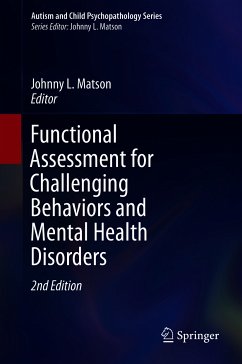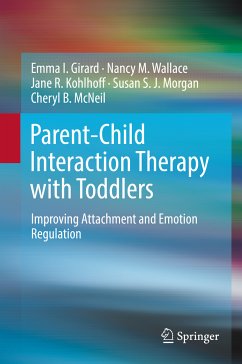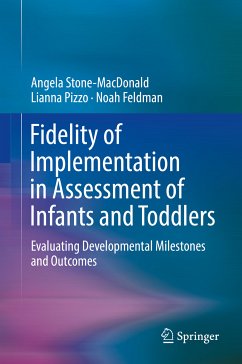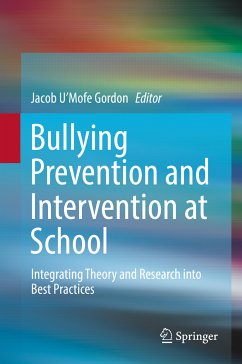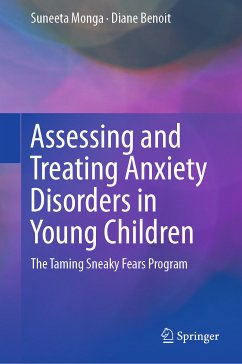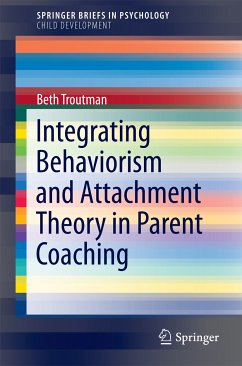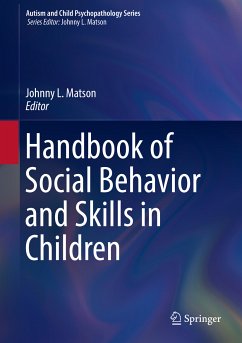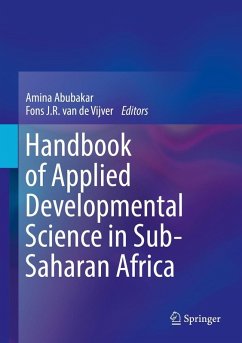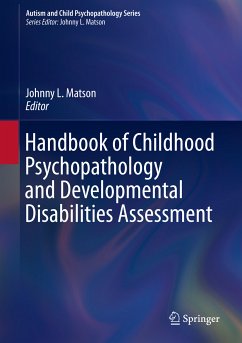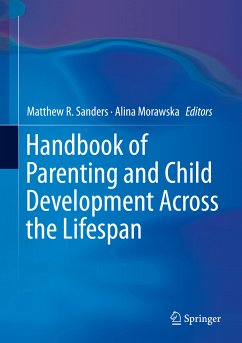
Handbook of Parenting and Child Development Across the Lifespan (eBook, PDF)
Versandkostenfrei!
Sofort per Download lieferbar
274,95 €
inkl. MwSt.
Weitere Ausgaben:

PAYBACK Punkte
137 °P sammeln!
This handbook presents the latest theories and findings on parenting, from the evolving roles and tasks of childrearing to insights from neuroscience, prevention science, and genetics. Chapters explore the various processes through which parents influence the lives of their children, as well as the effects of parenting on specific areas of child development, such as language, communication, cognition, emotion, sibling and peer relationships, schooling, and health. Chapters also explore the determinants of parenting, including consideration of biological factors, parental self-regulation and me...
This handbook presents the latest theories and findings on parenting, from the evolving roles and tasks of childrearing to insights from neuroscience, prevention science, and genetics. Chapters explore the various processes through which parents influence the lives of their children, as well as the effects of parenting on specific areas of child development, such as language, communication, cognition, emotion, sibling and peer relationships, schooling, and health. Chapters also explore the determinants of parenting, including consideration of biological factors, parental self-regulation and mental health, cultural and religious factors, and stressful and complex social conditions such as poverty, work-related separation, and divorce. In addition, the handbook provides evidence supporting the implementation of parenting programs such as prevention/early intervention and treatments for established issues. The handbook addresses the complementary role of universal and targeted parenting programs, the economic benefits of investment in parenting programs, and concludes with future directions for research and practice.
Topics featured in the Handbook include:
· The role of fathers in supporting children's development.
· Developmental disabilities and their effect on parenting and child development.
· Child characteristics and their reciprocal effects on parenting.
· Long-distance parenting and its impact on families.
· The shifting dynamic of parenting and adult-child relationships.
· The effects of trauma, such as natural disasters, war exposure, and forced displacement on parenting.
The Handbook of Parenting and Child Development Across the Lifespan is an essential reference for researchers, graduate students, clinicians, and therapists and professionals in clinical child and school psychology, social work, pediatrics, developmental psychology, family studies, child and adolescent psychiatry, and special education.
Topics featured in the Handbook include:
· The role of fathers in supporting children's development.
· Developmental disabilities and their effect on parenting and child development.
· Child characteristics and their reciprocal effects on parenting.
· Long-distance parenting and its impact on families.
· The shifting dynamic of parenting and adult-child relationships.
· The effects of trauma, such as natural disasters, war exposure, and forced displacement on parenting.
The Handbook of Parenting and Child Development Across the Lifespan is an essential reference for researchers, graduate students, clinicians, and therapists and professionals in clinical child and school psychology, social work, pediatrics, developmental psychology, family studies, child and adolescent psychiatry, and special education.
Dieser Download kann aus rechtlichen Gründen nur mit Rechnungsadresse in A, B, BG, CY, CZ, D, DK, EW, E, FIN, F, GR, HR, H, IRL, I, LT, L, LR, M, NL, PL, P, R, S, SLO, SK ausgeliefert werden.




